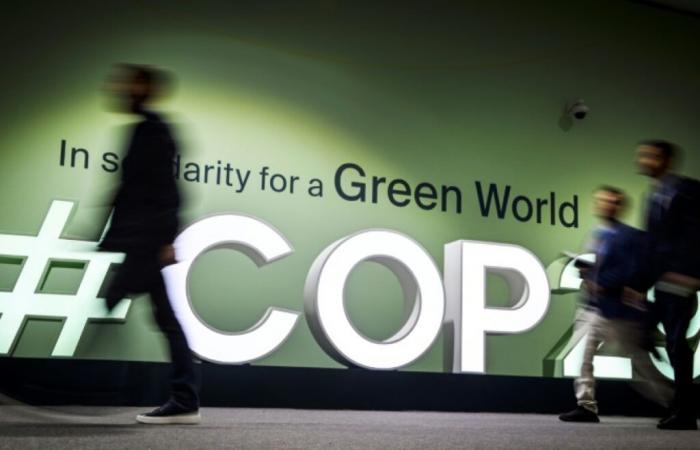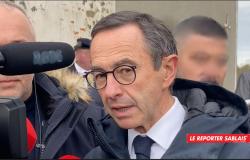COP29 participants in Baku, Azerbaijan, November 11, 2024 (AFP / Alexander NEMENOV)
Ministers from member countries of the Paris climate agreement have until Friday to figure out how to finance $1 trillion a year, and the head of the UN Climate has urged them to stop their brinkmanship.
“Let’s stop the theater and get down to business,” declared Simon Stiell, executive secretary of the UN Climate, at the resumption of negotiations in Baku, after the mid-COP29 Sunday break.
The dramaturgy of UN conferences often includes these accusations of obstruction, bluff or fool's play. But in general opinion, the fruit of the first week of negotiations at COP29 was indeed almost zero.
At issue: the classic blockage between the rich, like the EU and Great Britain, who are demanding more efforts to reduce greenhouse gases, and the rest of the world, which is asking for their financial promises first.
The COP “cannot afford for everyone to say 'you first'”, or for countries to wait for others to take the first step, declared Simon Stiell in an attempt to signal the end of recess. Hence the pressure on ministers.
Meanwhile, seven time zones from Baku, the leaders of the G20 (a group also including China and Brazil) meet Monday and Tuesday in Rio, and communications between the two cities have rarely been so intense.
Upon his arrival in Brazil on Sunday, United Nations Secretary-General António Guterres called on leaders to set an example and find “compromises” to save COP29.
“We urge them to take advantage of the G20 meeting to send a positive signal of their commitment to confronting the climate crisis,” also supported Mukhtar Babaev, the discreet Azerbaijani president of COP29.
The objective of COP29 is to set the UN stone in stone on how to finance around 1,000 billion dollars per year in climate aid for developing countries. This money makes it possible to build solar power plants, invest in irrigation or protect cities against flooding.
– Constructive China –
The European Union is the world's largest contributor, but in times of austerity, it is reluctant to increase its international budgets.
“We will continue to show the way”, but not everything can come from rich countries, declared the European commissioner in charge of climate negotiations at COP29, Wopke Hoekstra. “Others have the responsibility to contribute” according to their wealth and their weight in greenhouse gas emissions, he said, in an allusion to China.
“We cannot continue without the EU putting forward a figure” on its future financial commitment, criticized Chiara Martinelli, of the Europe Climate Action Network.
Europe is hoping for a signal from countries like China that they will voluntarily put themselves in the pot. In Baku, Beijing is not perceived as hostile, on the contrary, and EU-China exchanges are described as productive.
In Baku, the legacy of the COP28 in Dubai and its call for a gradual abandonment of fossil fuels, which countries like Saudi Arabia do not digest, is also at stake.
The re-election of Donald Trump and the departure of the meager Argentine delegation also raise fears of a withdrawal of the two countries from the Paris agreement, the diplomatic engine for the reduction of greenhouse gases. But Trump's arrival “galvanizes” certain countries to really move forward in Baku, observes a diplomatic source.
The inexperience of the Azerbaijanis to chair such substantial negotiations as well as the attacks in the middle of the COP by President Ilham Aliev against a member country, France, also weighed down the atmosphere.
A fortiori in a country which represses any sign of dissent, including among environmental activists, several of whom are imprisoned.
This was recalled on Monday by the Council of Europe Commissioner for Human Rights, calling for the release of rights defenders, journalists and activists in Azerbaijan, in a letter addressed to Mr. Babaev.






